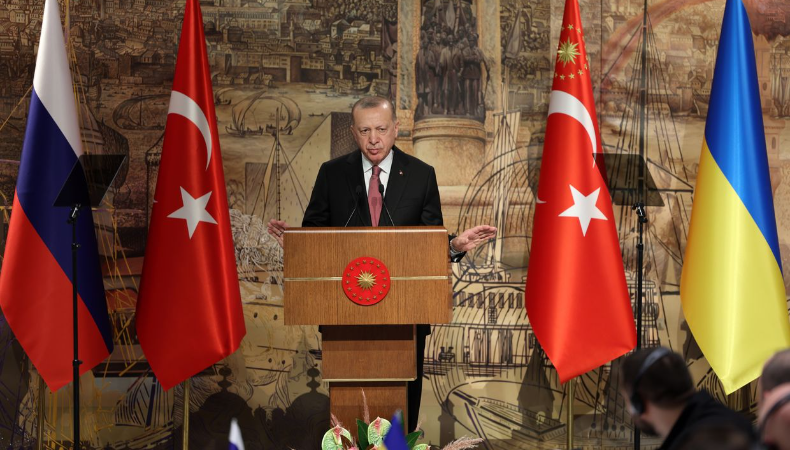Turkey Implements Export Restrictions on U.S.-Origin Military Goods to Russia

Following a clear warning from Washington, Turkey has apparently stopped the transfer of U.S.-origin military weapons to Russia, therefore marking a significant change in international relations. First published by the Financial Times on October 22, this choice emphasizes Turkey’s reaction to the continuing crisis in Ukraine and the pressure it encounters from its NATO partners. Ankara has changed its customs processes over the past several weeks to efficiently stop the sale of over 40 categories of U.S.-made goods judged vital for Russia’s military actions in Ukraine.
Specifics of the export limitations
The recently put in place limits especially target basic items including microchips, CPUs, and control systems. The development and upkeep of modern weaponry Russia employs in its military operations depend on these elements. According to several sources cited by the Financial Times, these actions are a component of Turkey’s larger plan to conform to international norms on the export of military technologies, particularly considering the increased attention on countries supporting Russia’s war operations.
Apart from these export limits, Turkish banks have allegedly cut their financial interactions with Russian companies during the last year. This change results from U.S. threats of sanctions against financial institutions that support military operations of Russia. Not formally declared, the revised policy on Russian exports reflected political sensitivity around the matter and the possible consequences for Turkey’s foreign policy.
Turkey’s Juggling Act between Russia and NATO
Aiming to keep friendly relations with both Russia and Ukraine, Turkish President Recep Tayyip Erdogan has negotiated a difficult diplomatic terrain even though he is a member of NATO. Given Turkey’s strategic location and impact over issues of regional security, this balancing act is especially important.
Turkey has been both a player in the current crisis and a facilitator of Russian oil flow to the European Union. This position has helped the Kremlin to get around some of the EU’s sanctions following its full-scale invasion of Ukraine. Turkey became the biggest importer of Russian fossil resources in 2023, buying around 42.2 billion euros (about $45.9 billion) worth of coal, natural gas, and oil—a startling five-fold rise over the preceding ten years. Turkey’s diplomatic posture as it tries to align itself with NATO partners while still profiting from its links to Russia becomes complicated by this economic relationship.
Support for Ukraine amid ties to Russia
Against its oil relations with Russia, Erdogan has often publicly supported Ukrainian statehood in a major paradox. Emphasizing Turkey’s will to assist Ukraine’s territorial integrity, he has given significant help to Ukraine since the start of the Russian incursion. Saying “We support Ukraine’s territorial integrity, together with Ukrainian Crimea,” Erdogan said on February 3, therefore expressing Turkey’s official position in favor of Ukraine’s claims and sovereignty.
Furthermore, Turkey, working with the UN, was instrumental in helping to arrange a grain deal for 2022. This arrangement allowed Ukraine to export its agricultural goods via the Black Sea despite the continuous invasion, therefore helping to reduce the worldwide rise in food prices brought on in part by the war. By using its geopolitical location to promote communication and therefore ease important commerce channels, this project demonstrated Turkey’s capacity to act as a mediator in the conflict.
Effects of Turkey’s Policy Change
Turkey’s recent decision to limit the transfer of military hardware originating from the United States to Russia represents a dramatic change in its policy and may have major effects on the global scene. The consequences of these export limitations could affect future diplomatic conversations and security policies in the area as Ankara keeps handling its complicated ties with both Russia and her NATO members.
Furthermore influencing Turkey’s internal policies and military-industrial sector—which depends on several international alliances and agreements for technical development and defense procurement—is this action. Turkey will have to negotiate these complexities carefully as the war in Ukraine lasts to prevent possible reaction from either side.
Turkey’s decision to forbid the export of military goods with the U.S.-origin origin to Russia shows a complex attitude to its foreign policy, balancing its duties as a member of NATO with its economic interests and ties in the territory. The dynamics of international relations will probably be much shaped by Turkey’s actions as the crisis in Ukraine develops, especially in terms of how nations react to Russia’s aggressiveness and the wider consequences for regional stability.




